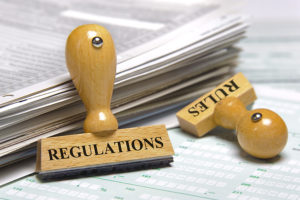PGCB votes sports betting regulations
The board met on Wednesday to vote on proposed regulations for the sports betting industry.
US.- The Pennsylvania Gaming Control Board (PGCB) gathered on Wednesday to analyse and vote on proposed regulations for the sports betting industry. While the state had introduced a sports betting bill way before the Supreme Court lifted the federal ban, the state is yet to come up with a regulatory scheme.
The PGCB has agreed to allow bets on games played by in-state colleges and universities, but it is estimated that they will begin in October when the season is already underway. PGCB Executive Director Kevin O’Toole confirmed that the new rules will permit full-game bets to be placed on in-state collegiate contests: “The primary intent was to follow the statutory language (of the state’s 2017 gambling expansion law) as closely as possible.”
The biggest collegiate sports franchise in the state, Penn State, has recently asked for a two-year moratorium on betting on colleges’ games as the university said that it needed time to adapt internally.
However, members of the gaming board said that the period is not needed. “This is disappointing news from the Pennsylvania Gaming Control Board as we have made clear our position that wagering on collegiate sports should have limitations, and that we be provided the time and resources needed to further educate our students, student-athletes, coaches and staff members,” said the university.
“Nevertheless, the university, together with intercollegiate athletics, will move ahead to educate our community on sports wagering and athletics integrity issues, and the consequences of rule violations and illegal behaviour. We also will monitor this issue closely as the new laws are implemented, and will certainly continue our advocacy efforts with the General Assembly moving forward,” Penn State added in a statement.
The current regulations are unfavourable for operators that wish to apply for a licence, as they would need to pay US$10 million for it, a 34 per cent state tax and a two per cent local tax as well. This tax is significantly higher than the one in Nevada, which is the leading market when it comes to sports betting in the US.
O’Toole said that the board doesn’t want to impose regulations that would restrict the market, and that casinos will be asked to submit in their licence applications a list of events that they want to open a betting market for, as well as types of wagers and potential in-game bets. “We’ll look at those portfolios,” O’Toole said, “and if we find anything that we’re not comfortable with, we’ll advise the sports operator accordingly,” he said.
The PGCB also talked about the petitions submitted by local casinos to operate online gaming in the state. Last month, the board accepted nine applications and is expected to receive more in upcoming months.









